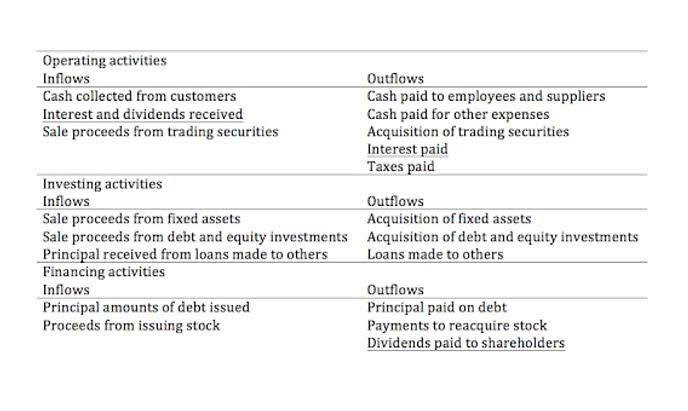
Church accounting is the specialized system of financial management and reporting designed to meet the unique needs of religious organizations. Unlike businesses that focus on profit, churches have different goals and requirements, such as tracking donations, managing funds for various ministries, and complying with tax exemptions. Understanding church accounting is crucial for maintaining financial integrity and transparency, church accounting which in turn fosters trust within the community. To streamline your bookkeeping processes, it is recommended to invest in reliable bookkeeping software specifically designed for churches. Such software often includes features tailored to the unique requirements of religious organizations, such as the ability to track donations and generate contribution statements. By utilizing church-specific software, you can efficiently manage your financial transactions, track expenses, and generate reports that provide valuable insights into your church’s financial health.

Run your church from one place with the tools you need.
- For small to medium-sized churches looking for tools to help you along the journey, a church accounting software designed with your church in mind will make all the difference.
- However, there are exceptions to this rule, as well as special forms your church may have to complete depending on its income or the state it operates in.
- As a result, fund accounting plays a crucial role in maintaining the trust of donors, stakeholders, and regulatory bodies by providing a clear and accurate picture of an organization’s financial health.
- While one major purpose of this letter is to thank the donor for their contribution, it should also function as a donation receipt.
The percentage of your church members who tithe or give can feel confident their tithes are being used effectively and responsibly to support the church’s mission and vision. net sales The primary purpose of church accounting is to advance the mission and vision of the church. This includes managing donations, tracking ministry funds, and maintaining transparency for members. Nonprofits and churches rely solely on donations, tithes, and offerings from members and donors for funding their ministry. Reporting to the Controller, the Accounting Manager is responsible for the oversight of the accounting operations of the organization, ensuring accuracy and compliance with accounting principles and regulations. This includes managing the day-to-day accounting activities, preparing financial reports, and providing strategic financial guidance to support the United Church of Canada’s Vision and Call.

Accountability, not Profitability:
This process helps identify discrepancies such as outstanding checks or bank fees, adding a layer of accuracy and error prevention to your financial records. Church accounting software helps you get your church’s bookkeeping done quickly and accurately, so you and your administrative staff can get back to the things that matter most to your ministry. My team and I (besides being stellar writers) are pastors and church leaders.

Best Practices for Church Bookkeeping
Fund accounting helps churches show accountability because bookkeepers can break down revenue and expenses into separate funds. As a church leader, your top priority is furthering your church’s mission and ministry. Everything you do in your role—from engaging the congregation to conducting community outreach—depends on your church having enough resources to fund these initiatives and managing its finances through effective accounting practices.
A robust church accounting method will clarify areas that sometimes feel chaotic. You can say goodbye to the stress of keeping track of scattered tithing envelopes and being able to streamline the financial processes with accurate financial reporting. This will give you more time to focus on what truly matters- serving your congregation and community. Additionally, their accounting software improved accuracy and transparency in financial reporting, making it easier for Parable to manage church budgets and track spending. The software’s user-friendly interface and mobile accessibility ensured that staff could submit expenses on the go, further increasing efficiency. Additionally, accurate bookkeeping ensures compliance with legal requirements and facilitates smooth annual audits, which are often necessary for tax-exempt status.
Ultimately, the organization should carefully consider both options and choose what works for them. Deciding whether to hire or outsource a church accountant is an important decision that can impact the financial management of religious institutions. There are advantages and disadvantages to both options, and the right choice depends on the organization’s specific needs and circumstances. Churches, like any other organization, need to keep a close eye on their finances to ensure a stable future and continued growth.
- These categories are based on the Unified Chart of Accounts (UCOA), a nonprofit-specific, standardized sample chart of accounts.
- You can also integrate Donorbox with leading accounting software like QuickBooks to sync donation data in both systems and utilize it for your fund accounting needs.
- Karrin recommends PowerChurch accounting software because it provides accounting software as well as church management features.
- Churches need to make sure they have enough money to do everything they want to do throughout the year.
- If your church decides to file annually with the IRS to limit the chances of auditing and build trust with their members, you must file Form 990.
- First off, there’s QuickBooks, the gold standard in accounting software.
Using Transparency to Strengthen Trust

For example, is the Haiti mission financially stable and is it fulfilling its purpose(s)? To understand mission accountability, the church has Bookstime to keep the financial transactions for the Haiti mission separate from the General fund. Designating transactions within a fund, allows for separate reporting and accurate information to be provided to church leaders. Church Accounting Software is designed specifically to meet the needs of churches. It will help track donations, manage funds for various ministries and projects, and generate detailed financial reports.
